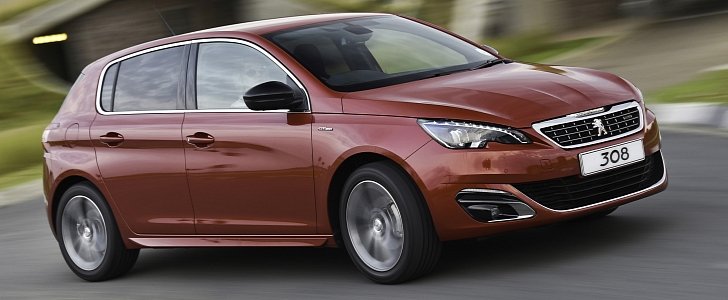PSA Peugeot-Citroen, Europe's second-largest automaker, said it would publish more accurate fuel consumption numbers of its major models. The announcement was made at a conference held in Paris and has been linked by many to the Volkswagen Dieselgate scandal.
The French automaker is adamant that it has not installed any hidden software that cheats emission regulation, such as the so-called "defeat device" developed by the Germans.
The first realistic economy numbers will be released in the spring of 2016. For now, the company is working out what kind of test cycle to use, while also implementing new systems to keep its diesel engines clean.
Peugeot is indeed a trailblazer in clean diesel technology, with measures such as fitting particulate filters 11 years before the EU made them mandatory. However, their decision to "come clean" might not be based only on good intentions.
You see, the European Union will soon enforce new regulations, under which fuel economy numbers will come from the real world, not test labs. The French government is largely to thank for this piece of legislation, the same French government that bought a 14% stake in PSA and wanted to inject €3 billion together with chinese company Dongfeng.
The real-world numbers coming out next spring will only include CO2 emissions and fuel consumption for all the best-selling models of the Peugeot, Citroen and DS brands. They will eliminate confusion among customers, but might also hurt them as well. Taxation in several countries is determined according to the claimed emission numbers, so owning a Peugeot could become more expensive.
Even before the Volkswagen scandal started, buyer preference began to shift slightly in favor of gasoline engines. PSA plans to respond to this by adjusting its pricing policy and lowering consumption even further on its BlueHDI models.
Diesel appears to be the most popular fuel choice in Europe. BMW CEO Mr. Harald Krueger has recently said that 80 percent of buyers pick this high cetane fuel. Some countries encouraged this form of motoring because it produces less CO2, the big greenhouse gas around. However, diesels have higher levels of NOx, which has been linked to cancer in children.
The first realistic economy numbers will be released in the spring of 2016. For now, the company is working out what kind of test cycle to use, while also implementing new systems to keep its diesel engines clean.
Peugeot is indeed a trailblazer in clean diesel technology, with measures such as fitting particulate filters 11 years before the EU made them mandatory. However, their decision to "come clean" might not be based only on good intentions.
You see, the European Union will soon enforce new regulations, under which fuel economy numbers will come from the real world, not test labs. The French government is largely to thank for this piece of legislation, the same French government that bought a 14% stake in PSA and wanted to inject €3 billion together with chinese company Dongfeng.
The real-world numbers coming out next spring will only include CO2 emissions and fuel consumption for all the best-selling models of the Peugeot, Citroen and DS brands. They will eliminate confusion among customers, but might also hurt them as well. Taxation in several countries is determined according to the claimed emission numbers, so owning a Peugeot could become more expensive.
Even before the Volkswagen scandal started, buyer preference began to shift slightly in favor of gasoline engines. PSA plans to respond to this by adjusting its pricing policy and lowering consumption even further on its BlueHDI models.
Diesel appears to be the most popular fuel choice in Europe. BMW CEO Mr. Harald Krueger has recently said that 80 percent of buyers pick this high cetane fuel. Some countries encouraged this form of motoring because it produces less CO2, the big greenhouse gas around. However, diesels have higher levels of NOx, which has been linked to cancer in children.

